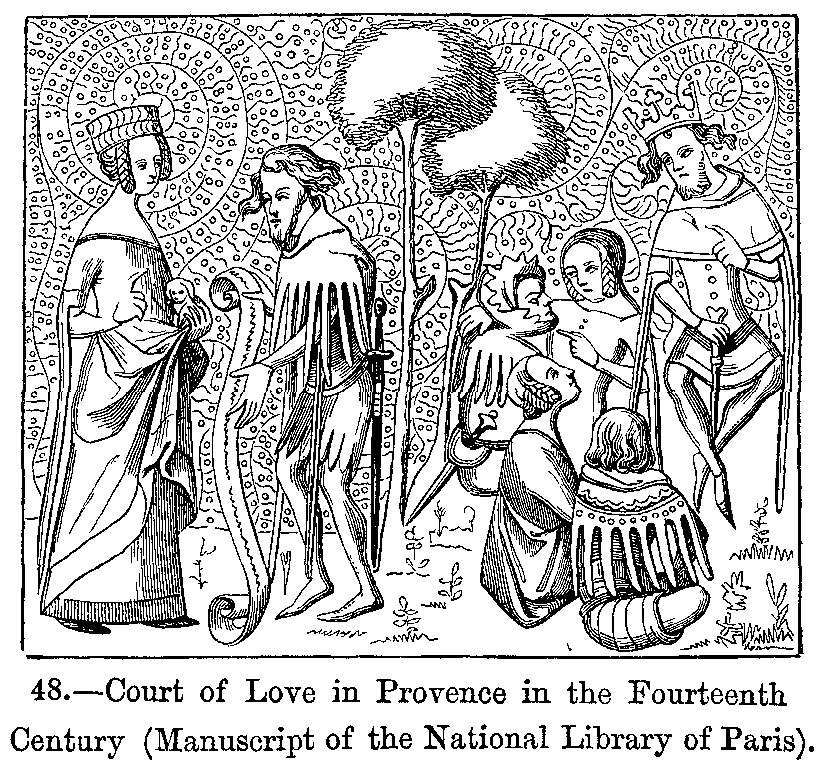
The Rules of Love
In the 12th century, Andreas Capellanus wrote a book about love. Here are some of the rules he outlined:
- Marriage is no real excuse for not loving.
- He who is not jealous cannot love.
- No one can be bound by a double love.
- It is well known that love is always increasing or decreasing.
- That which a lover takes against his will of his beloved has no relish.
- Boys do not love until they arrive at the age of maturity.
- It is not proper to love any woman whom one should be ashamed to seek to marry.
- When made public love rarely endures.
- The easy attainment of love makes it of little value; difficulty of attainment makes it prized.
- Every lover regularly turns pale in the presence of his beloved.
- When a lover suddenly catches sight of his beloved his heart palpitates.
- A man who is vexed by too much passion usually does not love.
- A true lover is constantly and without intermission possessed by the thought of his beloved.
- Nothing forbids one woman being loved by two men or one man by two women.
Capallanus gives lots of other rules and explanations, along with some other entertaining descriptions. But was he really outlining a playbook on love, or making fun of it? Were the rules a warning about manipulative women and the ludicracy of love? If only we could go back to 1174 and find out! At least through Capallanus's oft quoted rules of love, along with other literature of the time, we get a sense of the medieval social system, and its near obsession with the cult of Love: love as a feeling, as a measure of character and nobility, unrelated to the duties of marriage, or family obligation. And this different courtly love? It was something singlemindedly pursued-or so we gather from medieval literature and poetry on the topic. Let's just say, there was a lot of swooning, a lot of lingering, a lot of hoping, a lot of promises, a lot of aching with desire. Love was about the journey though, not the destination-fulfillment usually stayed just out of reach-the pleasure of pursuit a far greater thing than loves consummation.
Troubadours and Courtly Love
One place courtly love was expressed in heaps and measures is in the songs of medieval troubadours.
Troubadours flourished in the region that stretched across the south of France, from east to west, incorporating Catalonia and the Italian Piemonte, where the Langue d'Oc was spoken. Troubadours came from every walk of life-not all were wandering minstrels, or drifters singing for their supper. Rather they came from diverse backgrounds and social classes, from the working class all the way up to well off young men and rich lords. The one thing all Troubadours seemed to have had in common though was an unrequited love that they expressed through poetry and song.
Ensemble Céladon
A 2014 Ricercar release from Ensemble Céladon, led by Paulin Bündgen, presents this music of the Troubadours. Titled Nuits Occitanes, the recording reflects passion and desire and a search for love, charged under cover of darkness.
Performance interpretations of Troubadour song varies widely, due in no small part to the fact that only a few manuscripts from the almost 200 hundred year Troubadour tradition remain. And from those few manuscripts, many of the texts remain without corresponding melodies. In order to perform these pieces then, musicians have to come up with some solutions. One option is to create a new melody in the style of the place and time in question. Another is to fit the unassinged text to a different melody that does survive. Thanks to standard poetical formes fixes, it's not as tricky of a procedure as you might think. Lo vers comens for example heard on track 1 of this recording, borrows the tune from another song found in the Tropaire of St. Martial of Limoges.
The art of the troubadours eventually did die out, but not before spreading far and wide, even into German lands where the Minnesänger flourished. Check back next week to hear music of the famous Minnesanger, Oswald von Wolkenstein. But as far as Troubadour anthologies go, Occitan Nights from Ensemble Celadon is well worth hearing. It is subtly beautiful, and invites engagement rather than demands it.









